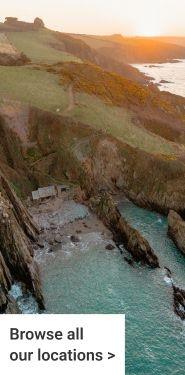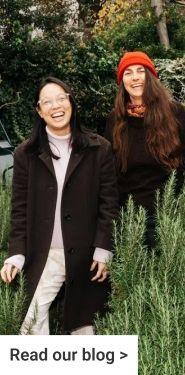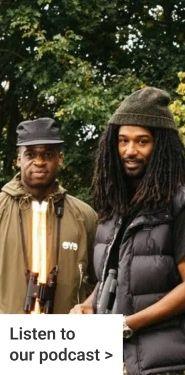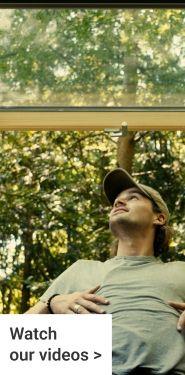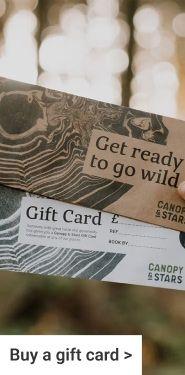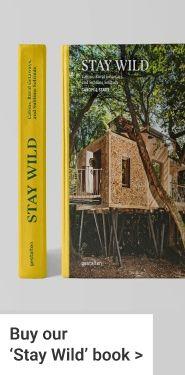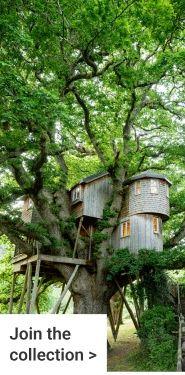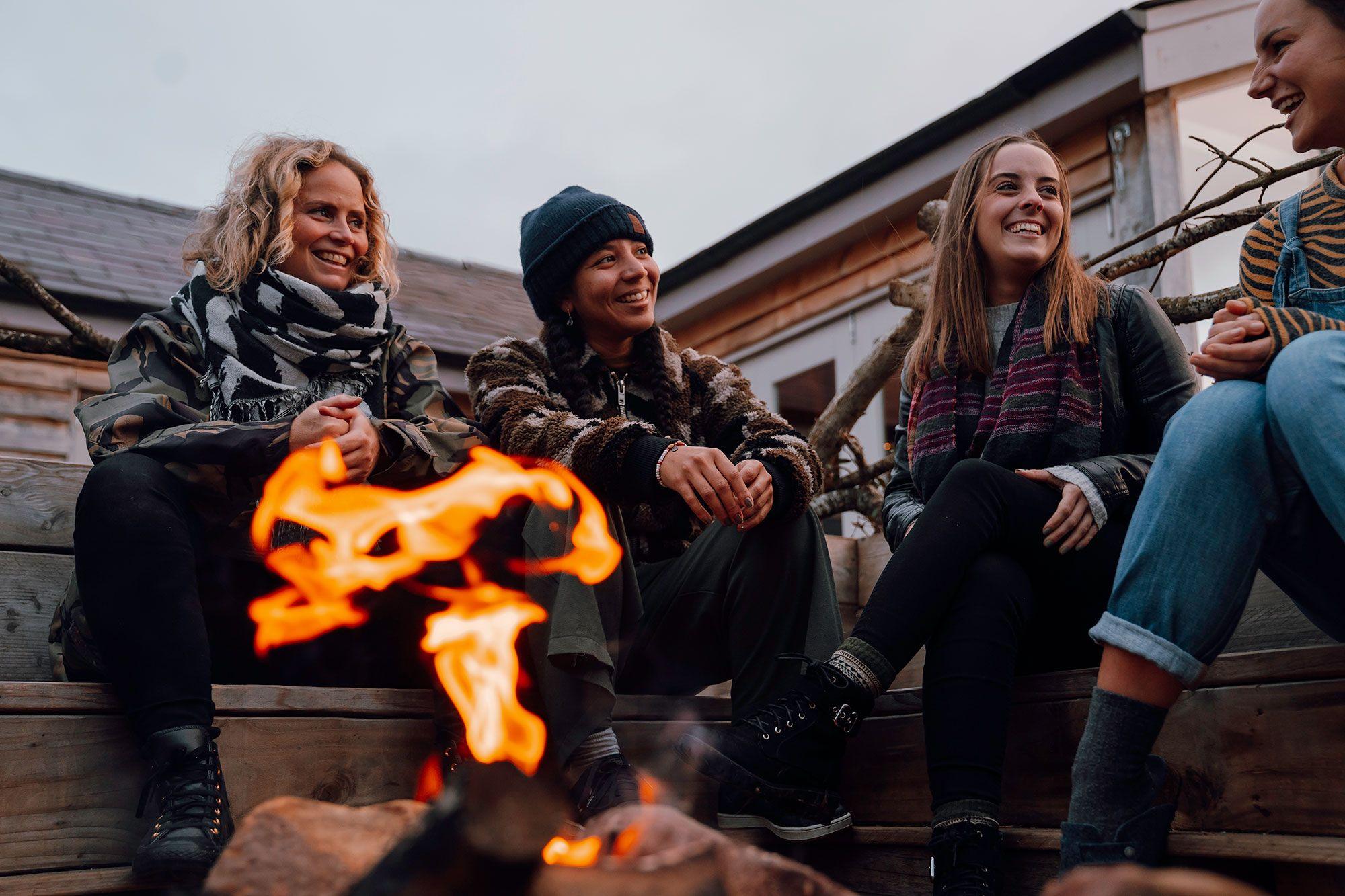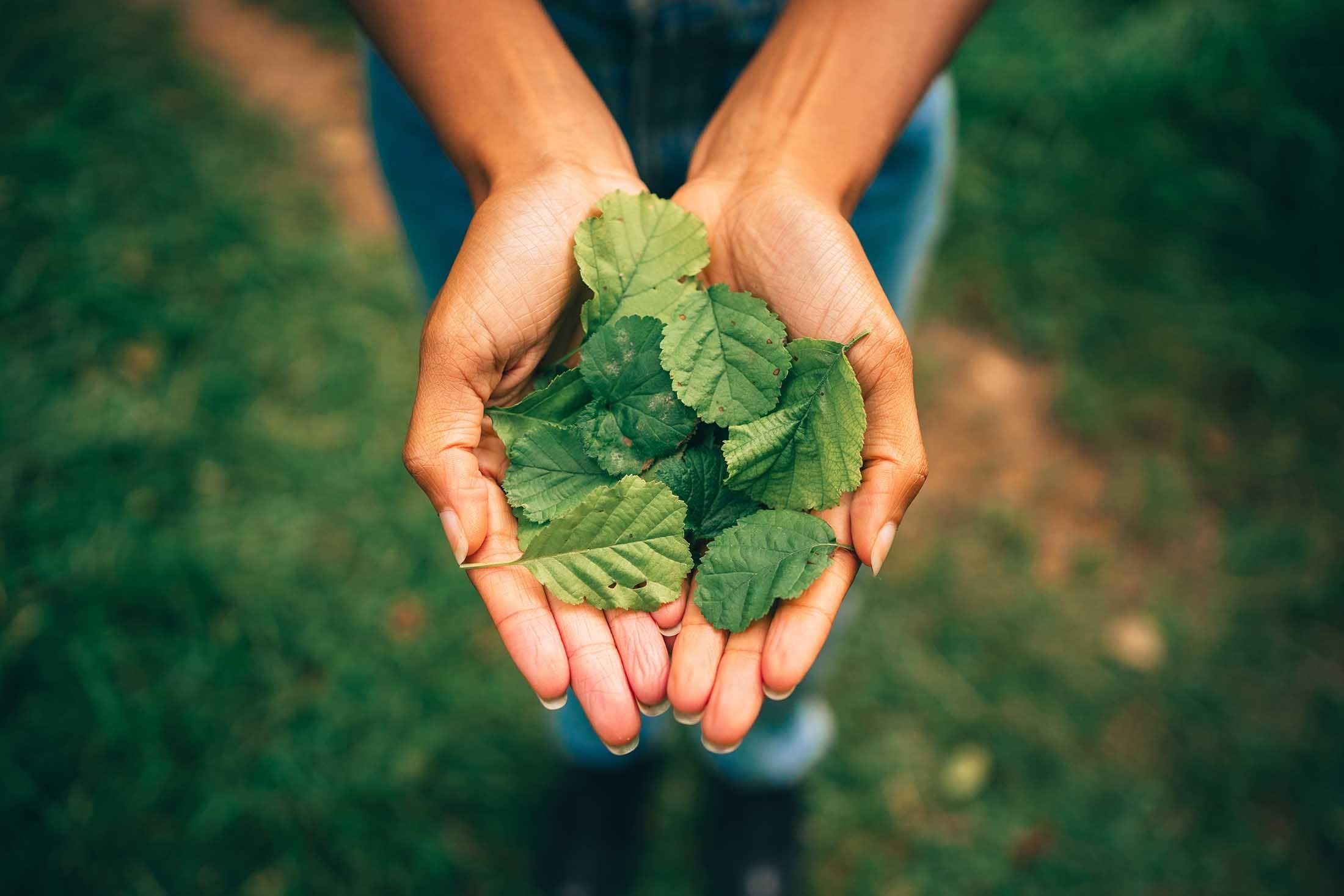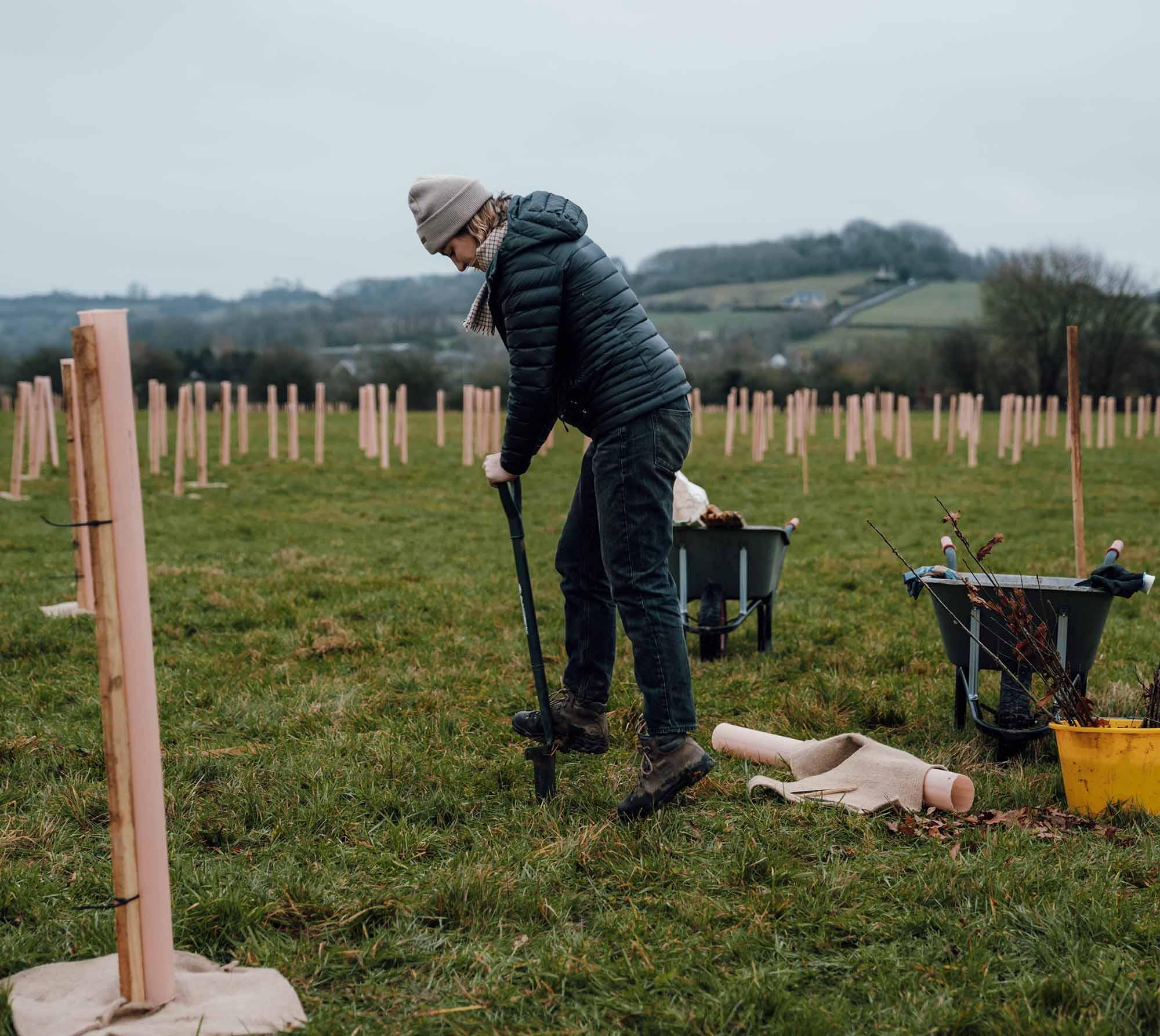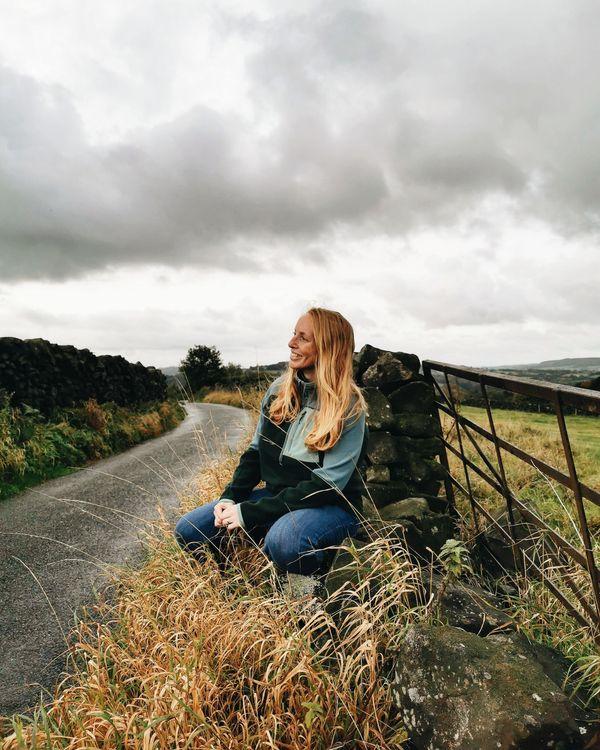
A Life More Wild - Episode 3
Dr. Ruth Allen & WilderMe
A nature walk with Dr. Ruth Allen
Dr. Ruth Allen is a psychotherapist, trainer and writer who specialises in outdoor practice. We meet her in the Peak District, where she is based, to talk more about nature's potential effect on our mental health and why she's chosen to bring nature into the counselling she does.
So where are we and what is it you do here?
So this is where I work. It's above Matlock Town Centre, and it's quite exposed, we're at about 1,000 feet here. And it's a kind of moorland environment. It's a very different environment to be in compared to like a closed room, we're sort of in the space together. And it's not a space that belongs to either of us, it's a shared public space. Actually, there's people around all the time, you know, you wouldn't have someone walking into your therapy session, usually, but here you will meet other people, you'll see people with their dogs. So it's a really different feel - it feels more informal.
Part of my work is really observing how people are and what their inclination is and where they are in their bodies and in their mood at any given time. So I'm really tuned in to where it seems people want to go and what they're naturally drawn to. And then sometimes I might sort of say, "oh, it seems like you're slowing down. Should we go down here?" So it's a very sort of intuitive, ever evolving process really, where we don't really need to say "right, what are we doing today, then?" Or "where are we going today?" I'm just constantly observing.
We're just heading down the main path now, which I think of as like small talk lane because it tends to be the bit that we arrive in the space. And we're just catching up on the stuff that's been happening during the week, you know, how are you and how are things and just doing the early checking-in that you might do if you're going and collecting someone from a waiting room or something like that. I like those kind of transition moments, but I thought I could perhaps show you where this kind of ant mound is, and maybe take you through to the bottom where the space opens out. And you can see bigger views over Matlock because I think those are really interesting spaces. They're favourites for me, I like the feeling of emerging from a closed space into an open one. And I think that's a very natural human thing. I think a lot of people would probably respond to that, because there's just that moment of like, "ahhh, I've come out of the tangle and into a bit of a space that perhaps offers a bit more clarity".
What made you want to start working in nature?
Working with nature for healing is as old as time really, we've always been looking to nature. So the concept wasn't new. I've always been interested in exploring at the edges of the mainstream ways of doing things so it was just something that really appealed to me, to see how it would work and, and it just felt very natural. Because I've always been outside, I'm confident outside. I love being outdoors. And it works for me as a practitioner. So there was a strong thread of, I think this will be good for my clients, but it's also how I want to be. I don't want to sit at a desk all day or I don't want to sit in a clinical setting all day. It's how I would want to have my therapy.
I do say with all the clients I work with, that we work in all weathers. I kind of have this belief that we don't choose the weather in which we heal, as a sort of general guiding principle. It's not always blue skies and sunshine. So unless it's absolutely vile out here, then we work with it. And actually, a lot of good things happen in therapy when the weather's not amazing. So sometimes there's a sense of release or a sense of "Oh, well, this is just typical, this kind of thing always happens to me". So I just think we have an emotional relationship with the things that are constantly changing, and the weather is an obvious one. And nature is very much in us, we are nature. And I think we all are naturally very responsive. And you don't realise that, I suppose, until you go out and you're tuning in to the differences in mood and behaviour in certain weathers. And certain conditions.
Talk a bit more about the process when you're out walking about?
Being in movement is a key part of the way I work. And so people tend to sort of think more creatively when they go outside. And there's a metaphor, there, isn't there, that people come into therapy, they want healing, or they want progress in a certain area. It may be that they feel stuck, they want a change. So being in forward movement is really useful, as an embodied metaphor for the thing that you want to kind of happen in therapy.
There's certainly a rhythm that you get into, and certain clients tend to be drawn to different parts. And you notice, there are areas where you get to crossroads. So we'll come to one down here, it opens out and you can take various directions. And I find that over and over again, we get to the same points, and we make choices. And so it almost takes on this rhythm of choice making and sometimes you end up at the same junctions on the way back. And that's quite interesting because you get a sense of places that become meaningful. And people start to map on to the territory a little bit. So I can tell when a client is drawn to certain areas, because perhaps they open out and they give a sense of perspective. Or that we'll get to these points in the path where there's a choice, and you just sort of start to get a feel for where people want to end up based on where they're at. It's almost like there's an internal mapping of the terrain, for whatever's going on at a certain time. And of course, people remember areas they've been to where they maybe talked about things that they're not really comfortable with, or they don't like anymore. And that's an interesting one, because there might be some areas we visit and you have a big conversation that you never visit again, because they don't want to go back there. I will be curious about that. I'll be curious about why is it that since last summer, we haven't been back to that area and that sometimes just opening that as a question brings an awareness that maybe they hadn't thought that they were particularly avoiding it.
There's a lot that just spontaneously arises. And you start to build a sense of people's patterns and their ways of thinking and their ways of moving. I love movement. I love working with movement and just watching how people sort of stop and start and where they pick up speed and when they slow down. And I think that tells you a lot about where their confidence is and their sense of agency and autonomy. So I'm always trying to hand that over to them.
How does it differ to standard therapy?
Sometimes we will walk quite quietly, and just be thinking and seeing what arises. So it's really nice for that. It's a lower pressure way of being quiet. If you're sat in a room with someone and everyone goes quiet, you can feel the pressure to fill the space, whereas out here, you've got birdsong, you've got the sound of the wind, you got the creaking in the trees. There's less eye contact when we're walking side by side. There's a natural sense that sometimes we're kind of half looking. We're always in each other's peripheral vision. But there are parts in the site where we go on to single track walkways. And so someone's going to be in front and someone's gonna be behind. So there's certain types of therapy where we know eye contact is really important. And there's a lot made about eye contact. But when you're working with trauma particularly, eye contact isn't always what people want, it can be too overbearing, it can be overwhelming. So I think it really lowers the pressure for people and I know that I find unbroken eye contact very difficult. And that's to do with how I have sort of grown up in the world. So I find there's too much of an intensity of attention. So I really like the variety of being with people in the space it's not as intense. Some people won't love that because they'll want that intensity in therapy.
Let's walk a little bit further...
So we're just about to cross over a wall that's sort of at the perimeter of the main site where all the woods are. It's a kind of a broken wall and it just goes through and opens out into a bigger view. It's not a great day today. It's quite rainy. It's quite foggy. But there is a sense of coming out from the undergrowth. And then we sort of step out into fields. So it's quite a nice boundary moment between the two spaces.
So you can see it sort of opens up here fields, and we've got Riber Castle up ahead. It's just a really nice to come back out into big sky. There's a sort of sense of breathing in and it's just a change isn't it. You come out and you can feel the wind now, we're getting sort of hit by the elements a bit more. It's a change and that's the thing to observe. It's gonna have different meanings for different people, or maybe no meanings at all. But it is a change.
Why is working in nature important to you?
I'm a mountain person. I think everyone has their terrain, they have their environment. And this isn't mountains, it's rolling hills. It's sort of the Derbyshire Dales. But there's a sense of perspective of being slightly above it all here, and then having that sort of looking down through the valley. And for me, that's, that's important. When I'm out here working, I feel good. And I think that's important, it probably sounds selfish, but I think if I'm going to be out here, and this is my work, I want to feel good and then something in me can rest. And then if something in me can rest, all of me is available to my client in a way that maybe wouldn't be if I was in a white box room, eight hours a day. So it's lovely.
Could you talk about how people respond to being in nature?
Yeah, some people want to take a photo, some people don't notice it. They're so in what they're in, that they don't notice the view and their head's down. And that's something to notice as well, that some people are not having any sort of visual connection to the landscape, they're just pounding the trail. We're just walking around, and they're not looking. But that can tell you something about the person, where they're at in their lives. I know that if I'm walking through somewhere, and I'm not paying it really any attention, I'm quite involved in my head at that point, I'm probably really busy with something, and I'm probably not in the best of places, or in the very least, I'm just very focused. And so that's telling you something about what it's like to be them in that moment.
When there's a lot to say, quite often you do walk less, sessions tend to be quite slow, therapy sessions are not at normal walking pace. We're walking quite slowly now. And this might be the pace we take in therapy, it might be faster than this, but the pace may change, you know, someone's getting wound up. And they're having more of a body response than they are a cognitive one. We might be tearing through and walking. You know, sometimes I'll look at my steps in a day. And they'll be quite a lot. And sometimes I'll be like how have we hardly gone anywhere?
If I see somebody has noticed something I'll usually just comment on that. I'll sort of say, "Oh, you've stopped". And a lot of the time it sounds really procedural. You're just reflecting back for them in a conscious way what they've done. So it's not like "do you want to go there? Do you? Shall we?" It's just like, "oh, you stopped?" And then you hold that... and then they'll be "Yeah, I saw something" or "it'll be quite nice to go in there, wouldn't it?" So usually, it's just a process of embodied relational mindfulness, it's just observing what's happening, repeating it back, creating that pause for them to think "Ah, yeah. Is there meaning in this? No, there's not, let's carry on, I just saw a squirrel or something." Really, you know, anything, anything can happen. And it's all material. And you get a sense of what to not ask about, and what's just a human mind looking and taking things in. And the length of time that maybe someone's looking, you think, Oh, this is meaningful. Let's, let's look at that.
And what would you suggest for people wanting to feel the benefits of nature?
If I was to say one thing that I would encourage everyone to do, is to go for a walk. And it is so painfully simple, but go for a walk and actually pay attention to the world. So leave your phone at home maybe, or at least put it on flight mode. And you listen to the ambient sounds of nature. They are very restorative. They're very calming on our nervous systems. They're really good at stimulating the parasympathetic nervous system. And you're not going to notice the ambient sound or the colours if you're distracting yourself with other things. So I think a tech free walk, once a week goes a long way.
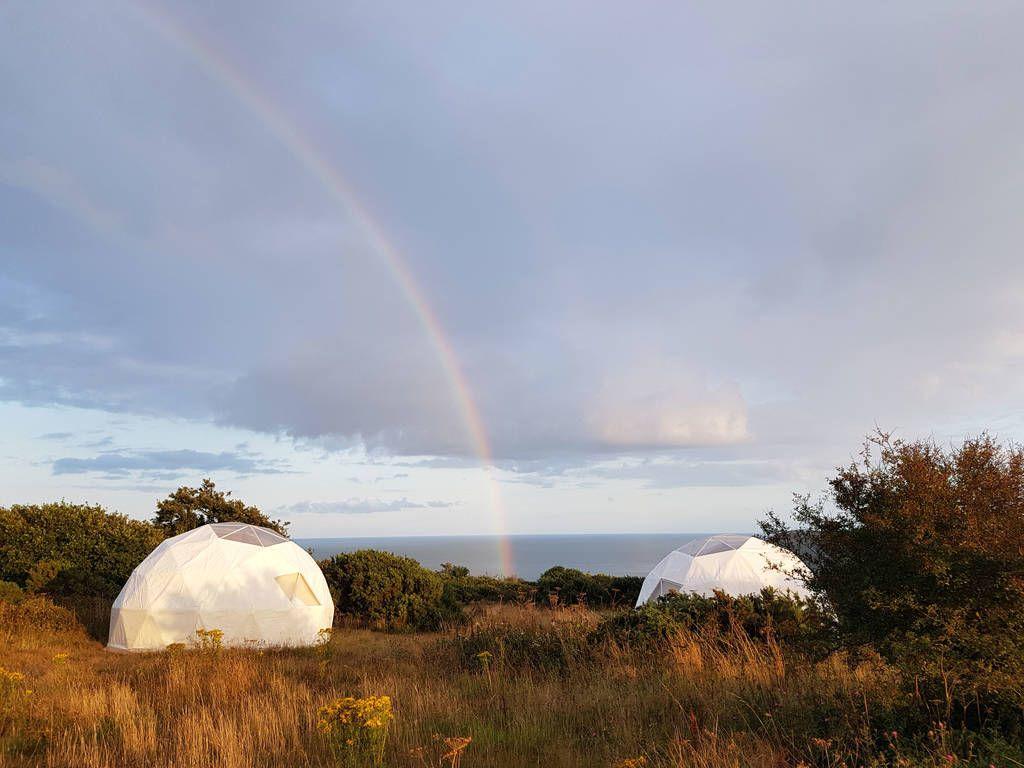
Nature-based retreats and the effects of nature with Natalie from WilderMe
While getting a bit of nature into your life is good for everyone. One Cornwall-based couple thought that for people with autism, it could be completely transformational. Support Worker Natalie and former professional drummer Geoff run the social enterprise WilderMe, where six year domes on a sweep of Cornish hillside are used for activity retreats for adults with autism.
Where are you? What does your land look like? What's the setup? Paint us a picture.
So WilderMe is a social enterprise that offers wellbeing, creative arts and nature-based retreats for autistic adults. We also offer affordable breaks for families with autistic children. We are based in Kingsand/Cawsand on the Rame Peninsula, which is just across the water from Plymouth in Southeast Cornwall. And the views are spectacular. The land's amazing. We sort of fell in love with it seven or eight years ago when we came on holiday and it's an amazing place.
So what's the layout of the site?
We've got seven geodomes. Six of them we use for accommodation and the seventh one we have for cooking and for doing activities and socialising and stuff like that, so it's a bit of a hub. All our domes look out to sea and they're off-grid apart from water, so solar-powered, two compost loo's... which once people get the hang of and understand the benefits of using (you're not flushing away five litres of water every flush) then people are kind of like yeah, okay, great.
It's just a really wild, natural site. We've got skylarks and Geoff's kind of the Birdman. So he's the twitcher of the two of us, what kind of birds have we got Geoff?
At the moment there's loads of white throats and the skylarks are all singing. It's quite a cacophony of noise up there at the moment. Apart from that we hate it! No, it's really amazing.
Could you explain a bit more about the project?
I basically was a support worker in North London, at a residential home for adults with autism. And we went on a camping trip to Suffolk and stayed in this amazing yurt. And we all ate together around the campfire. And we sat in the pub and sang songs and we rode our bikes. And the benefits of the actual holiday were so massive. When we came back, our psychologist was really kind of blown away by it. So Geoff and I just started talking about it and then we went to Cornwall and we found Maker Heights and this incredible site. And we started talking about like, what could we do you know, what kind of thing could we offer if we've moved to this amazing place. It just encompasses, like, everything that makes you feel good in life. So it's all about connecting to nature, the site is so beautiful and so wild. And it's also a little bit hippie'ish here, it's on the ley lines from like Glastonbury. And it's a place where you just really relax and sort of de-digitalize.
So how important is the nature around you to what you do?
It's really, really important. Where we are, it's really wild but you walk along the coastal path, and it takes you down into this beautiful bay. And it's perfect for natural wild swimming. And there's caves, and then you carry on going through and it takes you into the woods, and there's ancient woodland. And there's so much nature in there. And there's wild deer running around everywhere, then it starts to get really rugged and really wild. And then you just have these incredible stretches of beautiful golden sands, and it's perfect for surfing down there. And you can do SUP or just rock pooling, spotting dolphins and yeah, minke whales we've seen as well.
So you feel like whatever someone's going to respond to, you've got it.
Yeah, you've got everything. You can kind of get in touch with like, different emotions with different landscapes as well. So this is another kind of hippy moment, but you can sit in the bay of Kingsand and the waters just gently lapping against the shore. And it's all really calm and peaceful. And you get into, I guess, a really meditative state, but then you could go for a walk across the wild headlands.
**It's interesting, it may be a misconception but there's an idea that people with autism really appreciate routine. So taking people out of that environment. Why is that so beneficial? **
Yeah, I think it's just, basically because sometimes just so going on any holiday is really good for you. I think people go on a holiday and a lot of the time they have some kind of epiphany, because you get that time out. But if you then put yourself into nature and you're in like a tent, or you're in a geodome, like we have, you're just a step away from nature.
We have one guest in particular who regularly doesn't sleep very well at all at home. He has anxiety outbursts, even during the nights, it's a regular thing. And two years ago, when they first came, he didn't have any of these anxiety-related issues. We thought it might be just because we had such a full packed week of activities it's quite exhausting. We're all quite tired (in a lovely way) but you know, every evening around the campfire, singing or storytelling, and then you've had a whole day of SUP or foraging or chasing dolphins and stuff but the second year, last year, in a pandemic, we couldn't do the activities, and exactly the same thing happened again. So that was pretty amazing. And the home manager who was there was like, this is just incredible.
There's definitely something about getting out of your routine and everyday setting and being somewhere completely new. And we've had guests that have taken on experiences or tried out things that they would never do at home. You know, we've had guests that sleep much longer than they ever do -- 12 hours! Anxieties and other sort of those related conditions are definitely lowered.
So it might be a big shift in environment, but it's a shift to a much calmer one?
Absolutely. Absolutely. And there's also the level of just trying different foods. So we do foraging with a local lady that does foraging courses. We've had guests that would never eat green food at home and it would have to be disguised but they've eaten it here. We were told "they're never going to eat the foraged food" so we had backup supplies but they're having seconds of the nettle soup! The support staff were like, well, this is amazing. They wouldn't even eat a bowl of soup at home, let alone a green soup.
I think there's something so exciting about going out and learning about the food. And also you're picking it yourself. So you're connected in that way as well. So the whole process it's, you know, it's kind of everything's more raw, isn't it?
And this is all subsidised. I guess the places and things by our weekend breaks with Canopy & Stars so that's open to everyone and the profits from that then go back into the autistic retreats and breaks, and it keeps WilderMe sustainable.
But I bet you see the same effects on the weekend guests as well?
Yeah everyone loves it. And all the feedback we get is everyone's like, "Oh, I'm so relaxed. I haven't picked up my iPad all weekend" or, you know, people actually come and they switch off their phones, you know, I'm like, here's my number, and they're like, I'm not going to switch my phone on that kind of thing, which is really, really nice.
Is it something that is quite new, then, this sort of nature therapy?
I think doctors are now starting to prescribe nature as well. And I think we could just keep going down this path. It's like a can of worms, a good can of worms that we're opening. And more and more people are just realising that nature is so beneficial for us, it really, really is. And our hope is that people come and stay and they realise that, you know, we're not separate from nature, we are actually all part of nature, and we have a place within it and then hopefully go back home and you know, really start to think about where they live and their own environment and what they can all do to impact that in a really positive way.
So obviously, you guys must have seen incredible effects on people on the professional side and on yourselves personally. Is that something you think everyone can access? Can feel?
Yeah, absolutely. Getting out in your own garden or the science behind shinrin-yoku is that even just spending 40 minutes in a woodland can have huge benefits to your mental health. You know, bringing down your your heart rate, blood pressure, all these things, it doesn't take very long, it's just a 40 minute walk in the woods. But I think even in your own garden, just finding somewhere and showing sort of compassionate attention to nature, where you really zone in on it and an experience that love for it can help you feel like nature loves you as well, and you start to pay more attention to, to everything around you and the planet as a whole. I think there's a huge benefit for the planet and for ourselves.
If you just say to yourself, right, I'm going on my walk to the shops and I'm just going to take some time to just notice anything that's in nature, and it is everywhere. Even in cities you do get these beautiful places as well. You know, we do have parks and things that we can go to and access but we're so distracted with phones, digitally and everything around us as well. Blasted on, billboards or whatever. That is quite hard sometimes to go I'm gonna put my phone away and if I see something and actually spend a bit of time and work out what's going on here. There's a lot of other things trying to grab our attention all the time but once you start doing that little by little, like you said, just take your lunch outside, because it would just do wonders for how you feel about yourself and the world.

